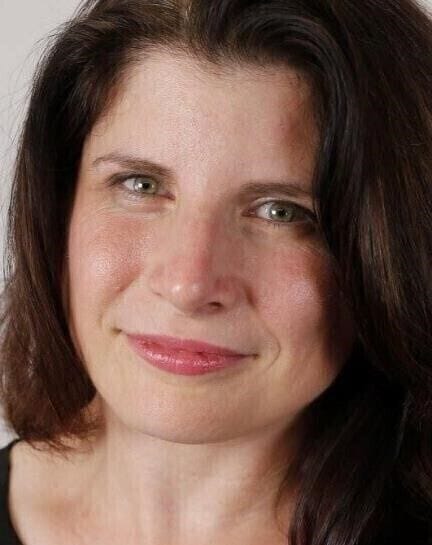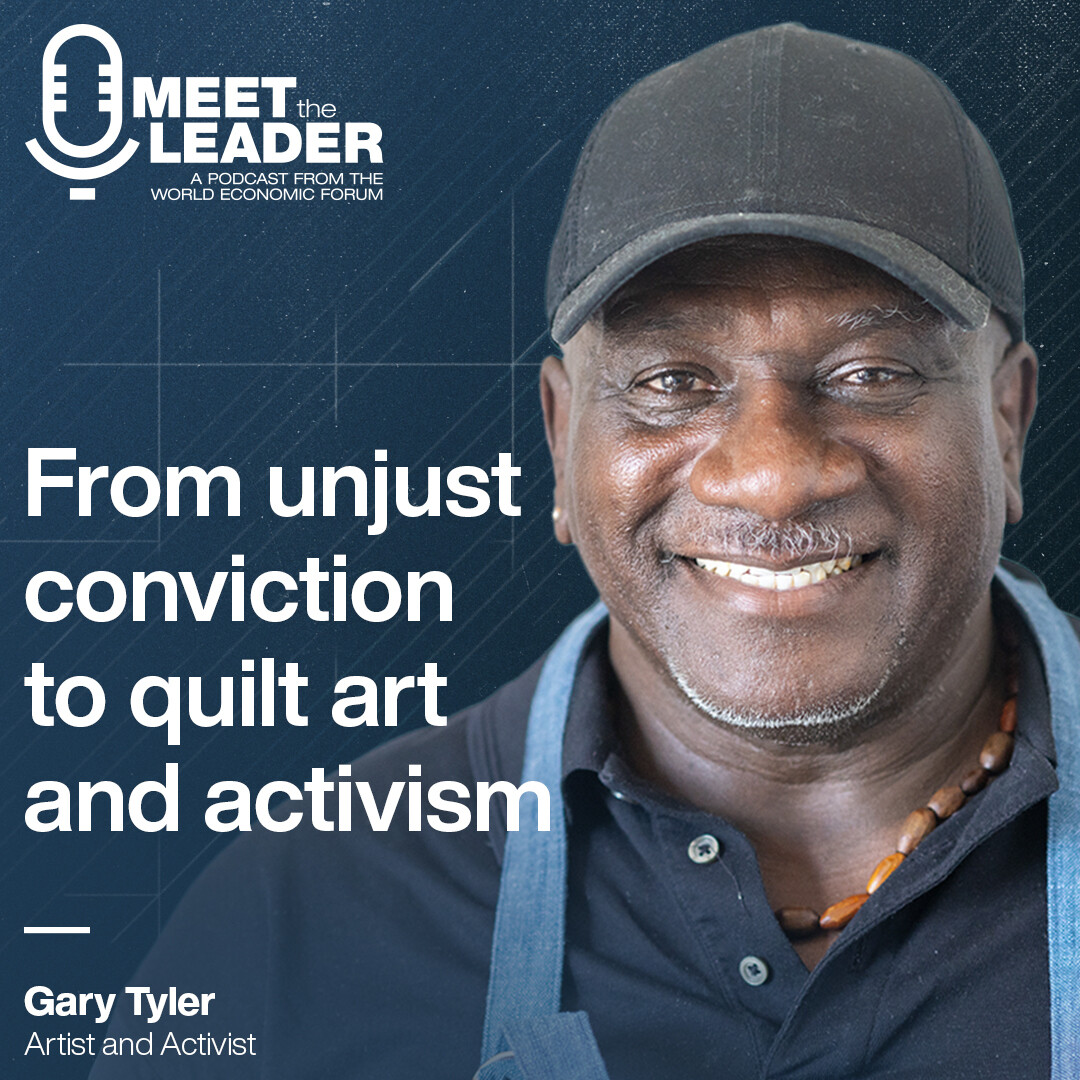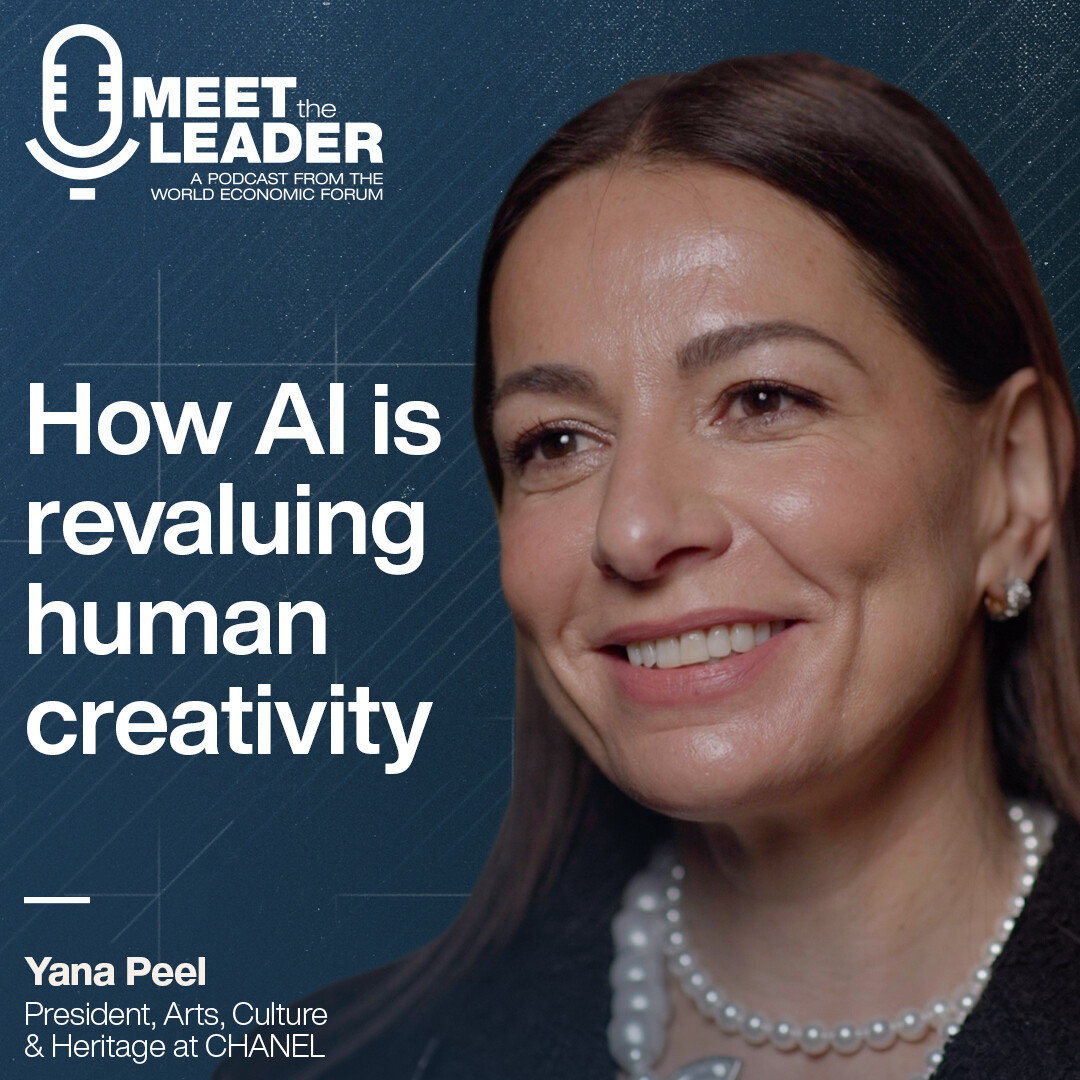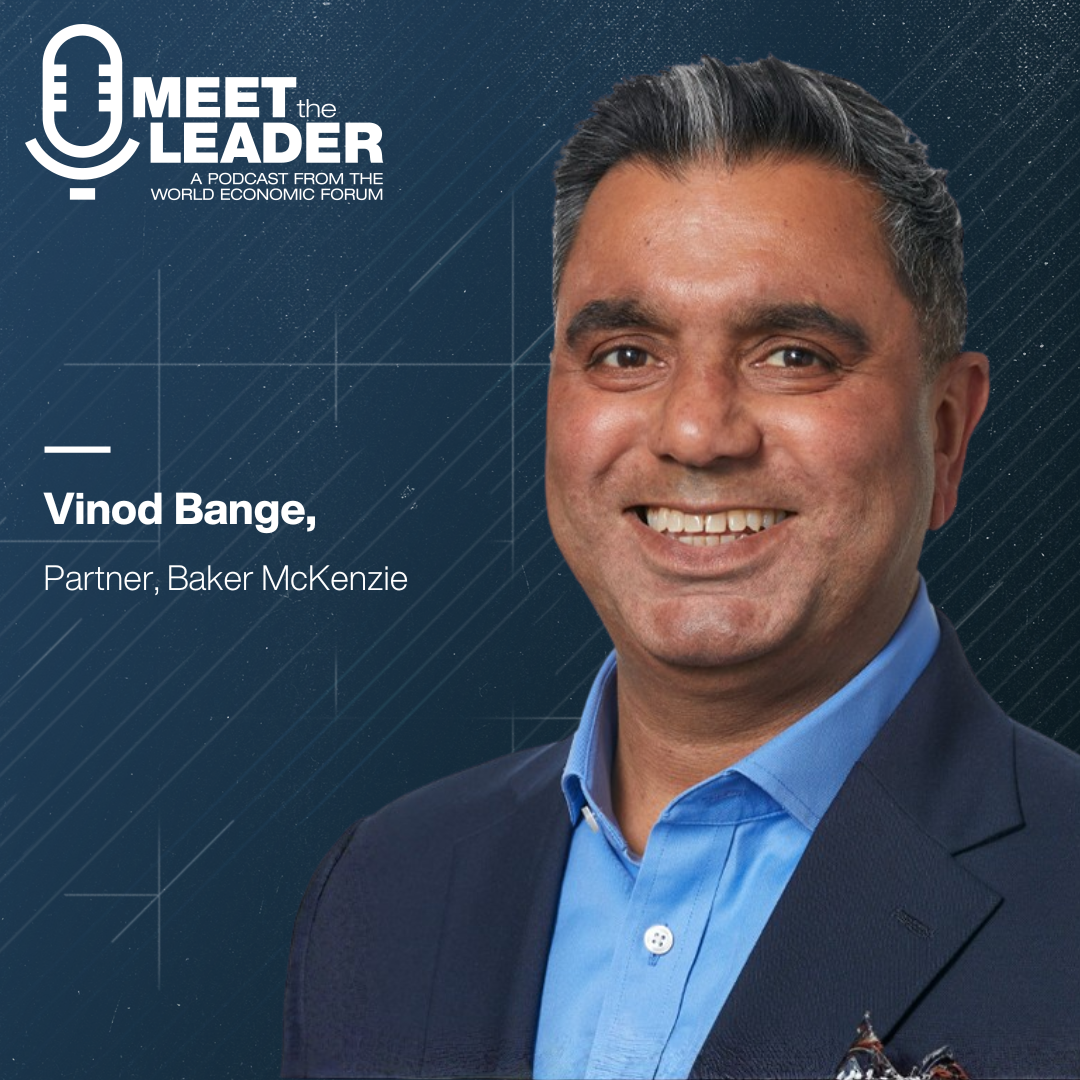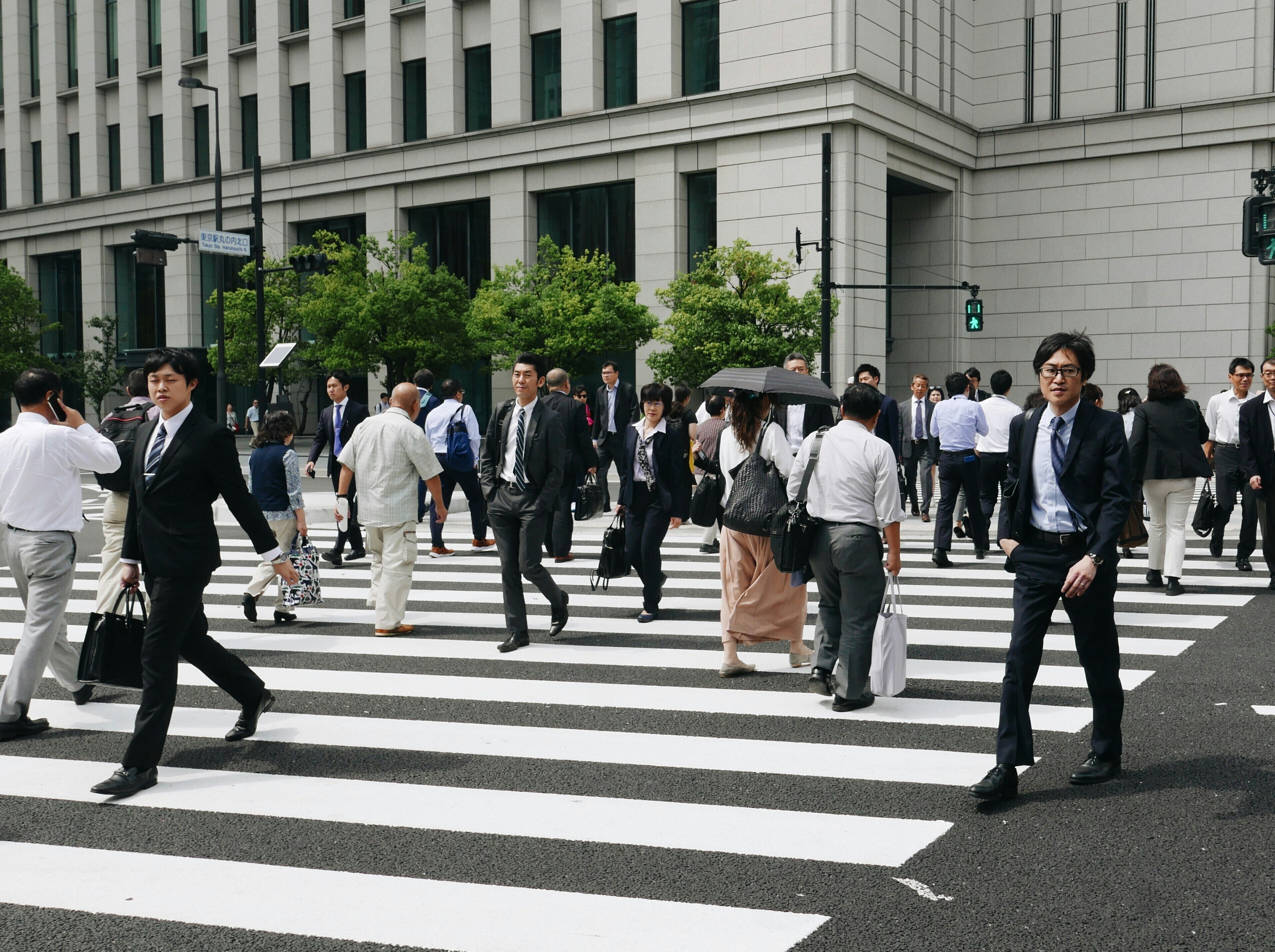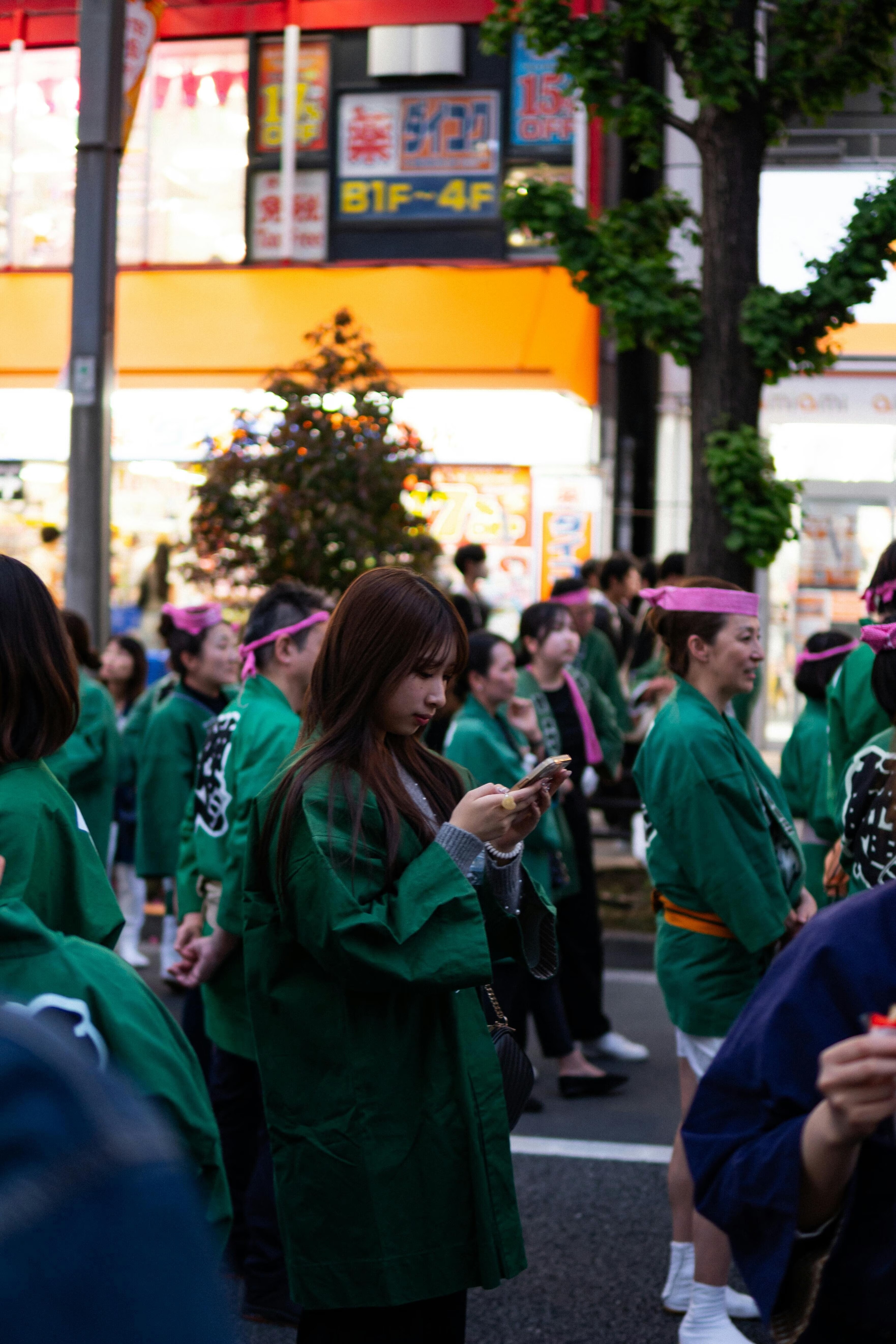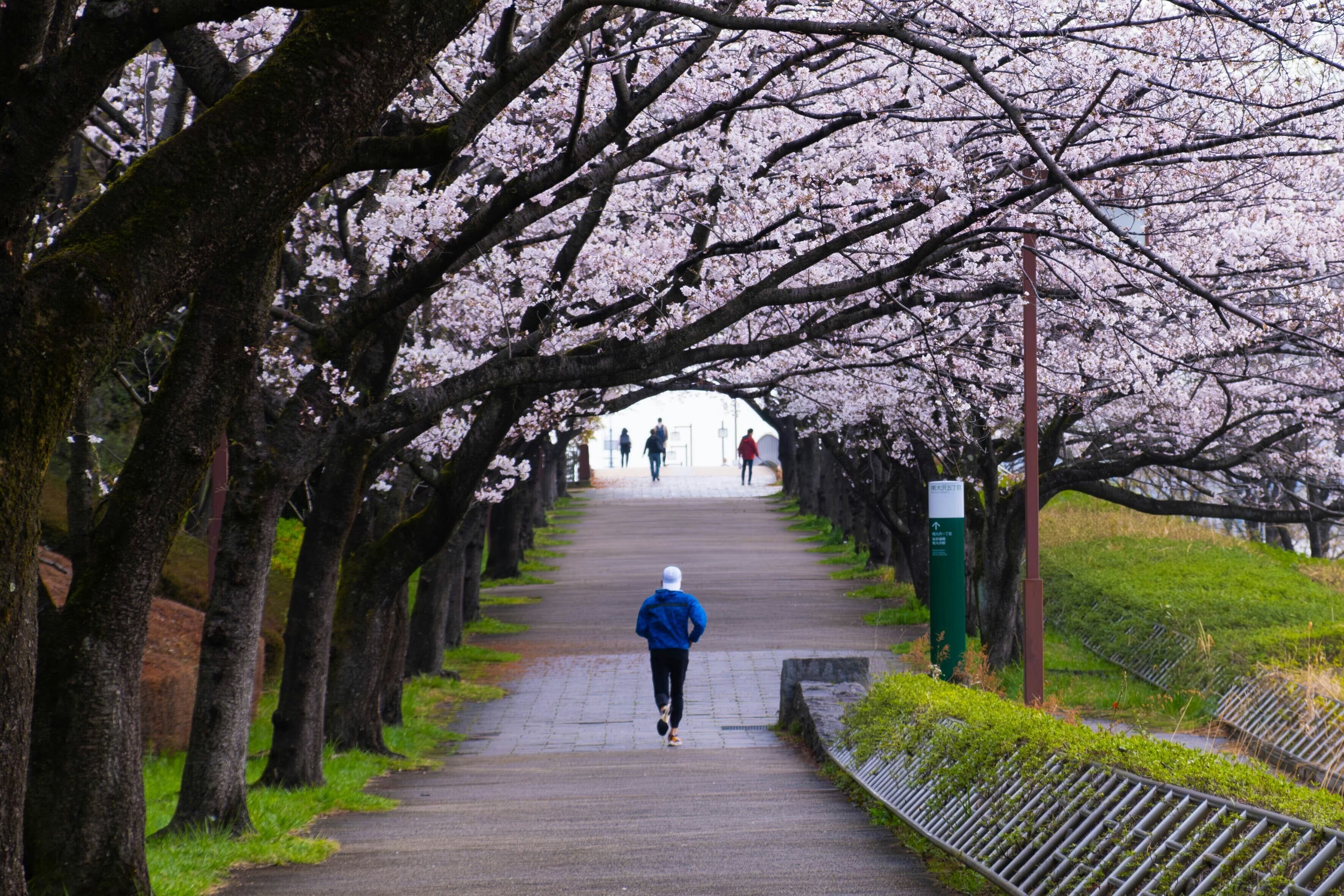A Gen Z founder on breaking down big stigmas and surviving hustle-culture
Nadya Okamoto is a social entrepreneur who got her start founding a nonprofit as a teenager that distributed menstrual pads to the homeless in San Francisco, an organization that grew into one of the largest youth nonprofits in the world, She has has since founded August, a lifestyle period brand, and knows first-hand that being a founder in this space requires tackling the shame and stigma that historically followed menstruation and menstrual products, one that today continues to creates barriers for everything from health equity to securing funding and support to bridge these gaps. In this wide-ranging conversation, she shares the the unique ways she uses social media in boundary-pushing ways to break down stigmas and how running teams at the height of startup mania, hustle culture and girl boss memes helped her learn the hard way how to prioritze rest and sidestep burnout, and how she leads and sets boundaries now.
ポッドキャスト・トランスクリプト
Linda Lacina, Meet the Leader: Welcome to Meet the Leader, the podcast where top leaders share how they’re tackling the world’s toughest challenges.
In today’s episode, we talked to Nadya Okamoto, the author, serial entrepreneur and founder of lifestyle period brand August. She’ll talk about what’s needed to break down big stigmas and what any leader can learn.
Subscribe to Meet the Leader on Apple, Spotify and wherever you get your favorite podcasts. And don’t forget to rate and review us. I’m Linda Lacina from the World Economic Forum and this is Meet the Leader.
Nadya Okamoto, August: Every conversation I go into where I’m looking for funding, investment support, you know, cross-sector collaboration, I have to first break the barrier of stigma around periods.
When I first started this work in 2014, I was getting social media posts taken down for even saying the word menstruation. Not showing it. Saying the word.
Period products weren’t allowed even on opportunities like TikTok shop and the business side of things -- we were considered a dangerous, prohibited item.
Even when I started on platforms like TikTok, I was getting my account flagged, getting violations. And I think through really working with the platform but also just continuing to try to normalize it through the content, I do not get those videos taken down.
I am not a banned account.
I think being able to have access to period products and live a confident life, not impeded by period stigma, would allow people to live up to their full potential both in educational and economic opportunities.
Linda Lacina: Leaders often need to break down big barriers to build something new. But what if the barrier that you’re tackling is shame?
Nadya Okamoto understands this challenge. She is a social entrepreneur who got her start founding a nonprofit as a teenager that distributed tampons and menstrual pads to homeless women in San Francisco.
It’s an organization that eventually grew to become one of the largest youth nonprofits in the world. She’s since founded August, a lifestyle period brand. But building a grassroots organization or a startup of any kind is hard enough.
And it is harder still when so many are not comfortable talking about women’s hygiene or menstruation and some funders might not even want to say the word "period."
Nadya talked to me about how she dealt with these stigmas and what she’s learned from bringing them out in the open and how she’s working to make conversations that had once been awkward, open and positive.
She also shared her leadership journey, including a turning point where she handed over the reins at her nonprofit and what she learned. She’ll talk about all that. But first, she’ll tell us more about her early days as a nonprofit founder.
Nadya Okamoto: I started my career 10 years ago when I was 16. I started a nonprofit called Period and it was really focused on addressing period poverty through service, education and advocacy.
I was 16, my family was going through a rough financial and security spot and so it was a time when I was thinking a lot about like, what is a need versus a want versus a desire.
And I had learned about period poverty through conversations in my own community and it was just a huge privilege check for me in realizing that no matter what my family is going through, I never had to use trash to take care of my periods. And unfortunately, that's the reality for many people.
I was privileged enough to be able to work on a study a few years ago that found the majority of teens in America, even, have experienced missing class or know someone who’s missed class due to a lack of access to period products. And I think for me, realizing that I had never had to miss class or miss an opportunity because I had my period was a privilege check for me.
And I then learned that in the US, 40 states in the US tax period products as nonessential goods and learned that periods were a leading cause of absenteeism for girls in school around the world and it just became a cause that I couldn’t stop thinking about and was obsessing over.
And I think, you know, as young people in the States, in middle and high school, there are all these like projects, community service projects where you’re encouraged to find a nonprofit to volunteer for. And I honestly just did research, trying to find a period poverty focus organization in my area and could not find any.
Even talking to local shelters, it was just not something that they had thought about, it was not something that they provided. And so I kind of took it upon myself to start something.
That nonprofit grew and grew and continues to grow under new leadership and I think my career has taken many shifts over the last decade but my mission has always very much been around menstruation, around access to menstrual products and period positive lives.
So I started on the nonprofit side. I wrote a book about it, kind of started organizing on social media and now run a socially-driven business that’s really about making higher quality period care and marketing it in a way that changes culture around periods.
Linda Lacina: And just to illustrate for people with Period.org, you started with a very small group of homeless women that you were helping get access. What exactly were you doing? What were the tangible things that you were helping connect people with?
Nadya Okamoto: When I first started the nonprofit, our goal was literally just to hand out a few dozen care packages of period products to homeless women around Portland, Oregon. Like I was walking up and down the streets.
There’s still videos of me at 16 with a bunch of friends putting together period care packages and then handing them out. And then quickly we started actually getting emails from shelters first in the area who needed organizing volunteer drives, school drives, collecting thousands and thousands of period products and word kind of just spread.
It was kind of in the early days when social media became something we were using every single day in our own lives as teenagers and word spread where, you know, first it was messages from shelters in our own area, then it was in the state, then it was in other states.
Then it was young people around the country who were emailing, how do I do this in my area?
So we wrote down what we did in a Google doc, shared it around and so I think that my organizational history is really kind of following the demand for interest in getting involved in what I call the menstrual movement now. And I think that it was very organic and something that I think really just met a need that had gone far too long ignored.
Linda Lacina: Can you explain what is health equity for women? You know, why is it so important to you?
Nadya Okamoto: To me, health equity means people having the resources that they need to be able to lead healthy and fulfilled lives and the resources that are needed look different for everyone depending on, let's say, where they live, what conditions they have or what body parts they have.
So, you know, people who are assigned female at birth need a unique amount of different resources as people who aren’t. And I think recognizing and celebrating those different resources needed is really important.
I specifically focus on periods, so access to period products, also working to eliminate the period stigma. So that doesn’t stand in the way cultural barrier-wise or even, just like, shame-wise from them fully participating.
And so, if I’m speaking from personal experience, if I don’t have period products that I need and I’m worried about bleeding through my pants and worried about what repercussions there might be or I don’t have a clean pair of underwear or I have crippling period pain and I’m not sure I have the answers or solutions to it, that prevents the way that I’m able to show up confidently and feel clean and ready to participate.
So I think that, you know, period equity is one of the most basic things that I think is really easily explainable to people when it comes to women’s health, because women’s health looks different in so many ways, whether it be family planning or otherwise. But menstruation is this kind of like basic biological function that is very individualized.
And no matter what where someone lives, what their cultural background is, if they were assigned female at birth, chances are they’re going to be menstruating on a monthly basis for the majority of their life and so periods and taking care of their periods -- It’s a universal experience and giving people what they need on their periods absolutely helps them show up more fully.
In the period space, there are barriers that we face that are very rooted in, I think, the stigma that still exists around periods.
”Linda Lacina: It’s such an important topic, period equity, but there’s still so many challenges with bridging these gaps. Why is that?
Nadya Okamoto: There are still so many gaps to achieving menstrual equity because stigma around menstruation is so deeply rooted in patriarchy and most societies around the world are patriarchal, right?
Even in the US, I think probably one of the more noted progressive countries, it’s still a universal experience here to feel ashamed of your period, not feel like you have access to period products, to even have our period products tax those non-essential goods in 20 states, right and that used to be the majority of states.
But I think that the stigma around menstruation is rooted in even some of the oldest religious texts that frame menstruation as something to be ashamed of, something that is a curse, something that’s dirty and thus we don’t talk about it and we don't talk about the need for access to period products and it's not prioritized in that way.
Period care is needed around the world and there are some places in the world where, you know, girls aren’t allowed to go to school on their periods or getting their period marks when gender roles of becoming a wife and a mother start or female genital mutilation happens around the time puberty starts, right.
And so I think getting one’s period is such a mark of your body maturing and biological maturing absolutely has had gender roles construct around that and gender stereotypes and a lot of those around the world are rooted in patriarchy and holding women back.
Linda Lacina: What barriers are entrepreneurs facing in this space to sort of create solutions and scale them?
Nadya Okamoto: In the period space, there are barriers that we face that are very rooted in, I think, the stigma that still exists around periods.
As an entrepreneur myself and formerly working in the more politics and nonprofit space, every conversation I go into where I’m looking for funding, investment support, you know, cross-sector collaboration, I have to first break the barrier of stigma around periods, right?
Because I’m going in a conversation saying, hi, I’m Nadya and I’m here to talk about periods. Still, in a patriarchal world, the majority of that funding and access to funding is run by older white men who aren’t comfortable talking about periods who can maybe not even say the word "period." They say “time of the month” or it’s just not something that they’re comfortable with.
Every conversation we go into to advance our work comes with this added obstacle of first needing to get people to even feel comfortable talking about about the conversation.
”
And so every conversation we go into to advance our work comes with this added obstacle of first needing to get people to even feel comfortable talking about about the conversation and then we want to turn them into menstrual health and women’s health champions themselves, right.
And so they have their own internalized misogyny and own internalized shame that they have to work through to then take the cause upon themselves. You know, a lot of what we’re talking about is menstrual blood, period pain, uterus, endometrium, like, these are things that aren’t still so talked about openly and positively.
So I think that the stigma and the societal stereotypes around menstruation is a barrier to advancing this work, which is why I’m talking about it in media, pop culture and, in my case, I talk a lot about it on social media and trying to find virality in a way that’s really period positive. And that work does advance the ability to achieve more progress.
Linda Lacina: Can you describe for us, we can sort of help imagine it. What does this world where maybe there’s no gender health gap, no period poverty – paint a picture for us. What does this world look like?
Nadya Okamoto: I think one of the guiding sort of lights and visions that I always hold in my head is actually a 1981 piece that was written by Gloria Steinem called If Men Could Menstruate.
And it's kind of a satirical piece on like, you know, if men could menstruate, they would compete on who has the heaviest flow and to be a mark of masculinity, there would be period products everywhere. And you know, it would be celebrated when someone gets their first period.
I'm very much paraphrasing but I think that the world in which everyone has access to period products, where we don’t put a tax on period products as luxury items, where, honestly, access to period products is accessible as free toilet paper in every public restroom, right?
I think being able to have access to period products and live a confident life, not impeded by period stigma, would allow people to live up to their full potential both in educational and economic opportunities.
Linda Lacina: I know you’re not CEO anymore but during your tenure at Period.org, how many people did you help?
Nadya Okamoto: So I think in the six years that I led the organization, we distributed around 25 million units of period products and had registered chapters in all 50 states and dozens of other countries. And in 2019, I replaced myself as executive director and that current leadership still goes today.
Linda Lacina: This was one of your first instances where you were sort of seeing, hey, here’s some of the barriers, here’s some of the stigma with supporting efforts to cancel out period poverty. What did you experience? What were these barriers when you were trying to get get help and get growth and scale?
Nadya Okamoto: I think especially at the beginning of my organizing career, the barriers were very much around funding and stigma, right? It was like we were trying to get period products to buy the products or we’re trying to get money to buy the products.
Then it was we’re trying to get in touch with the companies to give us products and distribute them. And again, I think even now we’re much more open about periods than we were 10 years ago and we had 40 states that had the tampon tax, not 20, in the States.
So, I think that, honestly stigma was the biggest barrier, was just trying to get people to be comfortable talking about this, realize it was an issue and I think social media is where that became our biggest tool. It became our biggest tool to start conversations, to break stigma.
And then it was funding, I think being a teenager trying to collect donations and convince people to invest in this as an issue to solve.
You know, I think for me, my whole focus was really around product accessibility and the more I learned about the work around getting people products that they need, the more I got interested in policy, because that’s how we, long term, secure funding and create the wheels of motion to be able to supply period products in schools and shelters and prisons.
I then kind of launched into policy work, ran for office, got really involved in legislative advocacy around like 2018, 2019 and then got more involved in business.
Because at the end of the day, I kept looking at the ecosystem we were creating, realizing, well, we need government funding to get products, we need charitable funding to get products but then the products that we’re getting aren’t the most sustainable and the products that we’re getting are marketed in not the most empowering way.
So everything that I was doing in this sort of ecosystem was coming back to the need for, I think, just like a social enterprise that was more rooted in creating a never ending wheel of generating revenue and generating capital and generating period products to be able to distribute to people who needed them.
That kind of impact is at the heart of what we do at August, whether it be the powerful period positive brand that we put out in the world, the viral content and education that we’re doing, all the way to, you know, using every amount of business growth to be able to fuel our impact both in terms of donating product to taking stands against things like the tampon tax, to working with school systems to get period products into bathrooms.
Linda Lacina: You talked a little bit about tackling the tampon tax and helping women have access. What are ways that the world is a little bit different since the founding of Period.org? What’s a little bit easier in this space thanks to its existence?
Nadya Okamoto: I think it’s really amazing how much progress we’ve made in the last 10 years and I know it’s kind of almost like unique to say that because I think we’ve seen so much rollback of reproductive freedoms in the last 10 years.
You know, when I first started this work in 2014, I was getting radio interviews, social media posts taken down for even saying the word menstruation, not showing it, saying the word.
And actually, my nonprofit wasn’t even named Period, when we started, for the first three years, we were called Camions of Care. That was our nonprofit name because we found so many barriers to even having the word "period" in our name.
So three years in when we changed and rebranded to Period that became like such a mark of progress, knowing that that wasn’t immediately going to get doors shut in our face. And now I have 6 million followers across social media where I post content of my actual period blood and showing what tampons look like.
Even when I started on platforms like TikTok, I was getting my account flagged, getting violations. And I think through really working with the platform but also just continuing to try to normalize it through the content, I do not get those videos taken down. I am not a banned account. and actually, you know, period products weren’t allowed even on opportunities like TikTok shop and the business side of things. We were considered a dangerous, prohibited item until two weeks ago [Interview held November 2024] and it was a lot of internal conversation and work with leadership and executives at TikTok to be able to take advantage of those opportunities.
As a business, the same barriers stand in the way of us, you know, continuing to find business growth on all platforms, right?
Businesses in the consumer space primarily grow through advertising on these platforms. You can’t advertise things around period products in many ways without it getting flagged. And so there’s this kind of censorship around talking about these things, which prevent businesses like ours to grow and to be able to make that impact.
But I think that we've seen so much progress happen in the last ten years from purely not being able to post anything, be able to find that organic growth, to now generating millions of followers from posting period blood very visually online.
Linda Lacina: And how does that sort of comfort with talking about this topic lead to changes, say, in policy, like the tampon tax and things?
Nadya Okamoto: You know, I think the first barrier of entry is talking about periods. Once people talk about periods, they can have conversations around period poverty in the tampon tax and they can talk about why in ads the period blood is blue not red, right?
And we can talk about what people can do to make change around these issues. And so once they have those conversations, it's saying, okay, now the governor should take down the tampon tax.
Now, you know, businesses should be more upfront about ingredients in their period products, right. We’re still fighting for ingredient transparency in period products and I think that’s something that my brand really tries to lead in as well.
But that’s something that for almost a century this industry wasn’t really held accountable because there wasn’t a conversation around it. So conversation breeds the opportunity to be able to make progress on these issues.
Conversation breeds the opportunity to be able to make progress.
”Linda Lacina: And when it comes to the tampon tax, can you talk a little bit about the change that's happened since your time and also sort of the impact that you personally have had?
Nadya Okamoto: Yeah, the tampon tax is a sales tax on period products, considering them non-essential goods. And when I started this work in 2014, the tampon tax was in 40 states. Now it’s in 20 states, so we've made quite a bit of progress. And again, I am not the only one who's been working on this. It's been such a beautiful movement and not just nationally. I think the US is actually quite far behind when it comes to the tampon tax, because we’ve seen whole nations take it down. India, Australia, the United Kingdom took all revenue from the tampon tax and invested it in providing period products in schools. Right?
Like there are so many examples around the world where whole countries have taken a stand on this. And the tampon tax is a very symbolic thing to take down because it codifies into law that menstrual products are non-essential goods. So when we talk about legislation around providing period products for free as a necessity in schools, in prisons, the tampon tax is a legal precedent that it is not a necessity. And I think that that’s something we need to fight with the tampon tax and we still have 20 states to go.
It's kind of crazy because in many of these states, it’s generating millions of dollars of revenue. But it’s also a very, very small like 0.01 percentage of state budget, right. And so I think in many ways, this is an opportunity to really change public opinion, organize the public to be able to put pressure on the governor who can take down the tampon tax.
I think that that's where I really lean hard into grassroots organizing and social media as a way to push for that change.
Linda Lacina: You mentioned that on TikTok it was a dangerous product. What, in your mind was really instrumental in sort of changing hearts and minds on that policy. What was key to that?
Nadya Okamoto: I think one of the really key things on advocating for allowing period products on something like TikTok Shop was like I was banging on the door of every office and every person. I actually went to Davos [2024] and brought it up with the COO of TikTok and said, this is unfair.
And I think I also was not shy about exposing them and screenshotting the policy that said prohibited items, medical devices, period products, along with, you know, e-cigarettes and sex toys. And I was very public about this is written into policy and this is something that we aren’t able to provide but basic beauty items are.
And I can understand tampons are FDA approved class two medical device but I think that they should have the same opportunities for business growth and even just conversation as something like a face cream.
They’re both beauty products but period products are truly a necessity and something that people need to be able to live life with. And I think that it’s a huge opportunity not only on the business side but also in breaking period stigma. And so, it wasn’t me but I was very loud about the need to open up that opportunity for companies like mine.
Linda Lacina: The contributions that you’ve had. What do they mean to you personally?
Nadya Okamoto: I think that a lot of my motivation is rooted in this kind of sisterhood. I’m one of three sisters raised by a single mom and I also really struggle with major depressive disorder and post-traumatic stress disorder and borderline personality disorder.
I have quite a few acronyms to describe my mental health and I think a lot of my mental health can leave me feeling quite drained and just depressed about the world. And I think my work is what fuels me and brings me hope and joy.
You know, I think that it’s what gets me out of bed in the morning and I think seeing the small wins every day, whether it be more period products donated or another law taken down or community that we’ve felt and built. I think that those are wins that continue to inspire me.
And honestly, I think that my work has been one of the most amazing things for me personally and in handling my mental health. I feel very fulfilled and very excited about the work that I get to do and it’s what drives me. And I think I’m not afraid to also admit that a lot of my work comes from a place of anger.
Anger at the system, anger that these issues are still a thing, anger at patriarchy and misogyny. But I think that anger really fuels into just a fiery passion that I have.
Linda Lacina: After you left Period.org you founded August. Can you tell us a little bit about August and how it sort of stands out in the period product space?
Nadya Okamoto: Yeah, August is a period care brand. We started making just tampons and pads and we launched in 2021. And again, the goal when we launched was to create a period care brand that could lead by example in sustainability and transparency and also just in softness, right?
In recognizing that we need to push the envelope on innovation to make the comfiest and most absorbent period products. And we also wanted to lead by example and invite other companies to copy us in our impact commitments.
I think one exciting thing that we’ve done is we recently [2023] launched a coalition where we invited eight of our competitors to join us in refunding people for the tampon tax they’re charged. So if people buy us in stores, they can text us a picture of their receipt and we’ll Venmo them back for the tax that they’re charged. And that’s something that we’re covering as brands ourselves.
But I think I am really passionate about coalition building, even in like a capitalistic setting, like companies who are in the same category, because I think at the end of the day, we don’t want to gatekeep impact and methods of creating impact.,
And I think that I really wanted to start August as a way to really lead by example in what does it look like for companies to actually create positive change.
I think -- and I wrote a lot of my book about this -- that the period product industry is actually responsible for creating the negative stigma around periods, especially in the States. Selling us this idea that you have to buy products to hide your period; to forget you have a period, you buy the products; you don’t talk to anybody about it; you use exactly what your mom used. And that actually supports margins of these corporations because they spend less on marketing, it’s a commodity product and they can kind of have the ownership of the industry.
And it’s almost a $52 billion industry, if not more, by now. And so, I think for us, it was really kind of taking down the shades around this industry saying we want to talk about it openly. Let’s talk about ingredients, let’s talk about transparency and be very open about that being very open about supply chain and how and why we made the products the way that they are. I think that kind of idea of leading by example is something that I felt really strong in.
I think also my own academic journey of grappling with capitalism and like the harm that it does. And how do you create change in the world?
I think I felt very trapped for many years with the nonprofit industrial complex because it was like running a nonprofit but being dependent on capital from private donors and foundations and companies and corporations to do the actual work.
I think I felt I kind of built this thesis in my head that the best way for me to individually make change was to actually take some of that power back in my hands and build a social enterprise that we could really dictate and own what long term change looked like.
Linda Lacina: You’re very open about topics that, you know, as you’ve mentioned, a lot of people are still a little bit hesitant to talk about. What do you credit for this openness? What helps you?
Nadya Okamoto: You know, I’m very open about like mental health. And I think that, you know, people often I think will congratulate me for that vulnerability. But I think in actuality it comes from a very selfish place of feeling alone and those experiences and I think a lot of it relates to periods, right?
Like we are made to feel alone in the experience of menstruating and only through talking about it openly do you realize, like, “Wait, you deal with that? Me too. Like, wait. I also know this person does.” And I think that it's kind of something that very quickly you find community with, right?
And I think especially being a young woman and being a trauma survivor, the unfortunate reality is that the majority of women have experienced some form of sexual violence. Honestly, it’s really sad. But like any spaces of women and I talk about experiencing sexual violence, I find community with other survivors.
So my vulnerability comes from a place of, honestly, a craving for community and a craving for feeling less alone. And I think that’s where I’ve only benefited from being open with my experiences.
Linda Lacina: Every entrepreneur hits walls. It’s just the nature of the business. What is a wall that you hit? You get through it but you know, what was it? And you know what did you learn?
Nadya Okamoto: I think at times in my life, the biggest obstacle in my career has been burnout. Conditioning myself to derive my self-worth from work and attachment to kind of the success that I found from external validation. And, you know, I’m very passionate about my work. I throw myself into it. I feel so connected to it, which also means that I really struggle to detach from it.
I mean, I’ve burned out to the point of being in emergency rooms and residential rehab and not being able to get out of bed and having being strung up to IVs. And I think, you know, everything from capitalism to the model minority myth around Asian Americans conditions into me that like rest is a waste of time and rest is a bad thing and it’s not productive.
And I’ve gotten to a place in my life of realizing rest is like the most important thing in my entrepreneurial journey. I sleep 10 hours a night and work out once a day and eat really well and I think that that is what makes me the most productive person possible in my work.
Linda Lacina: You mentioned earlier that you left top position at Period.org.
What I think is interesting about that is that a lot of startups, a lot of organizations, there’s a certain point where the person who founded the organization, maybe it’s that just not the right stage for them to keep taking it forward. And I think that there’s not enough, maybe accountability from folks to make those decisions. It's a hard decision.
How can any leader sort of be more accountable? Like OK, am I the right person for this role right now?
Nadya Okamoto: So I stepped down from executive director of Period in 2019 and started this national search for a new executive director. And I think I felt for years so under qualified for leading that organization.
It grew way beyond what I ever thought it could. And I think I kept getting to a point where I would meet other nonprofit leaders and just be so amazed at their experience and so amazed at their expertise and there are very technical skills involved in running a global nonprofit. I think I got to a point where I felt like I was holding the organization back.
Because if I wrote down like a job description for hiring an executive director of that nonprofit, I didn’t meet most of those qualifications. You know, no experience in grant writing coming into it and being able to run a budget of millions of dollars and continuing to scale that.
You know, there’s imposter syndrome that you should kind of ignore, right and realize, like, "No, I’m worthy. I’m meant to be here." And then I think that there’s an imposter syndrome that can sometimes tell you something of like, oh, it’s not that I'm unworthy of a position, it’s that I’m recognizing that I’ve taken the organization to a point where I can hand it over to someone and they can take it even further.
And I think it was a mix of that and meeting organizational leaders where I was like, please come and for the sake of this movement, take over this organization so you can grow it to the next place.
But also, I think it was that once you recognize that you’re not the best person for the job, it doesn’t become as fulfilling. Right? Because I think that for me, the fulfillment of my work comes from waking up every day being like, this work needs to get done and I'm the best person to do that work.
And I simply, in that nonprofit journey, was not the best person to do that job and I found someone who is who continues to amaze me and their leadership. But, you know, I'm currently at a place in running my company, August, where I do feel very I am meant to do this job and there is no one else who can do this job as good as I can at this moment.
That might change in five years, as we grow. And I think also as companies grow, the job becomes a lot more technical. But at the beginning of a company, it’s all about heart and passion. And I have a lot of that. But I don’t have a business degree and I don’t know what it’s like to run a Fortune 500 company and I don’t think I ever will but I’m very eager to surround myself with business leaders who can kind of take it to the next level on that side.
Linda Lacina: I was listening to your podcast, Tigress, and there was a really interesting conversation you had about girl boss culture and you had mentioned that how you kind of started Period.org during this sort of influx of startup obsession that had happened.
And the girl boss meme was very, very prevalent at the time. And what was interesting to me about that is you said that, hey, this hustle culture work harder, longer, faster. That is the route to success. That was a time where for the first time there really were more examples of of women leaders.
There really weren’t that many CEOs. There aren’t that many women CEOs even now. And so that was an example to follow. And then sort of leading to burnout that you had. Can you talk a little bit about that experience of sort of seeing that and sort of saying, hey, this is the route to success, that example to follow. And sort of what examples you follow now.
Nadya Okamoto: I mean, I came into my career in 2014, which is kind of when girl boss culture was like at an all time high. Right? And I think it was all about hustle. I mean, there were posters on the wall of every co-working space that says, no sleep until I die. And, you know, work hard, play harder.
I think that there was this celebration of put on a pantsuit, pull up a chair and just work and we have to work 10 times as hard to get half as far. And it was all about working and working. And it’s kind of like the myth of meritocracy – the more you work, not necessarily working smarter and more strategically, just the more you work, the better the outcome.
And it was very much kind of labeling rest and joy – personal joy – as like a waste of time. And I think I bought into that to the point where by the junior year of high school, probably every other month, was fainting from exhaustion and going to the emergency room. And the emergency nurses knew my name and my mom’s name and my mom kind of jokes about it now.
Like every “Oh, there's Nadya’s hospital” but it was like that was unfortunately a norm of mine. And everybody was saying, slow down. You don’t need this and I was just like, no but this is like literally what it takes. And I don’t think that that’s true at all. And if anything, like being exhausted doesn’t make you the best leader, it makes you make mistakes and forget things and drop balls of what you’re trying to juggle.
And I think it’s very different now. Now I like prioritize my rest and I prioritize my boundaries because I recognize that, like when I’m present and awake and energized, that’s when I do my best work.
To achieve gender equality, we need women to be at the table. For women to be at the table, they need to be healthy.
”Linda Lacina: If you were going to give advice to maybe another young founder who’s kind of building, what are two or three ways that she could make sure that she’s prioritizing joy along with this work?
Nadya Okamoto: I think the thing I would tell to any aspiring female entrepreneur is we can all recognize that this work is hard. And, you know, the majority of startup businesses fail. And I think that the only way you can keep going is to take care of yourself, right?
Because there is no mission and work that you dream of without you being able to do that long term. I have so many friends who are still, you know, kind of coming back from burnout, who started around the same time as me. And I think that I’m really proud of getting to a point of being able to rest and recognize my boundaries.
I think I would also kind of encourage young aspiring entrepreneurs to really find community with people they want to be like, I don’t believe in having like one mentor who you model everything after. I’ve never asked someone to be my mentor but I think I look at everybody that I’m inspired by as mentors and people to learn from and I think that I kind of pick and choose what I want to learn from each.
I think that I am where I am today because I have that community and that’s what I would encourage other people to surround themselves with. Surround yourself with people who challenge you, who question you, who push you to be better, more aware and who inspire you not only in their work but in their lifestyles.
Linda Lacina: You talked so much about essentially being accountable as a leader. What’s a question you would suggest that they ask so that they can kind of overcome these blind spots and get accountability.
Nadya Okamoto: I think accountability is something that everyone is always and should always be working towards, you know, even furthering. A lot of what I think is important in my own accountability journey is surrounding myself with people who will hold me accountable.
I think it’s why diverse communities are so important, is you need to surround yourself with people who are going to push back on you and who are going to ask you about your intentions.
I think negative feedback and critique is so important in the work we do.
”I think that for any leaders out there who look around them and they realize like nobody’s been pushing back on me or questioning me and I'm giving ideas and everybody’s like, let’s go, let's do it and I'm not getting any negative feedback. I think negative feedback and critique is so important in the work we do.
And I think it's why having for me, like a co-founder who is never going to be afraid of pushing back on the ideas that I have or stances that I have, I think that’s so important. I think that kind of critical discourse is so important. And so I think that the biggest thing is surround yourself with people who will challenge you.
Linda Lacina: What’s a piece of advice that you’ve always been grateful for?
Nadya Okamoto: The piece of advice that I’ve always been grateful for is leaders are people who empower others to be leaders themselves. You know, I think that that learning has always taught me to delegate, which makes my life easier and better and it also helps me create a better team.
I think when everybody kind of feels empowered and excited about the work that they’re doing and they feel authority in what they’re doing and I can always make progress in how I do this, I think that’s where you really start to see kind of the flywheel effect of an amazing team.
Linda Lacina: That was Nadya Okamoto. Thanks so much to her, and thanks so much to you for listening.
Bridging the women’s health gap could mean $1 trillion boost to annual global GDP. Learn more about that in a special report launched this year from the World Economic Forum Blueprint to Close the Women's Health Gap: How to Improve Lives and Economies for All.
To listen to more podcasts, including my colleague’s podcast, Radio Davos, go to wef.ch/podcasts. Find a transcript of this episode, as well as transcripts from my colleagues podcast, Radio Davos at wef.ch/podcasts.
This episode of Meet the Leader was produced and presented by me with Jere Johannson and Taz Kelleher as editor, Edward Bailly as studio engineer and Gareth Nolan driving studio production.
That's it for now. I'm Linda Lacina from the World Economic Forum. Have a great day.

